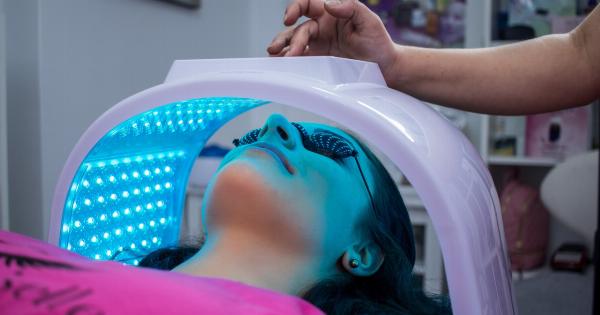Menopause is a natural part of a woman’s life that marks the end of her reproductive years. It brings many physical changes, including a decline in hormone levels that affect the skin and various organs in the body.
One of the most visible effects of menopause is the appearance of wrinkles, fine lines, and dry skin.
What Happens to Your Skin during Menopause?
During menopause, the levels of estrogen and progesterone, the hormones that regulate the menstrual cycle, drop significantly. This affects the skin’s ability to retain moisture, produce collagen, and repair itself.
As a result, women often experience a range of skin problems, including:.
- Dryness, itching, and flakiness;
- Wrinkles, fine lines, and sagging skin;
- Hot flashes, redness, and flushing;
- Acne, oily skin, and enlarged pores;
- Dark spots, discoloration, and hyperpigmentation;
- Thinning hair and brittle nails.
How to Maintain Beautiful Skin during Menopause
While menopause may bring many skin challenges, it doesn’t mean you can’t have beautiful and healthy skin.
By adopting some simple habits and making a few changes to your skincare routine, you can prevent or minimize the signs of aging and keep your skin looking radiant, smooth, and supple:.
1. Stay Hydrated
Drinking plenty of water is essential for keeping your skin hydrated, plump, and elastic. It also helps flush out toxins and impurities, which can contribute to acne, dullness, and inflammation.
Aim for at least eight glasses of water a day, and consider adding herbal tea, coconut water, or fresh fruit juice to your daily hydration routine.
2. Get Enough Sleep
Getting adequate sleep is crucial for your overall health and well-being, including your skin’s health. During sleep, your body repairs and regenerates itself, producing collagen and elastin that keep your skin firm and smooth.
Lack of sleep, on the other hand, can cause dark circles, puffy eyes, and a sallow complexion. Aim for seven to nine hours of uninterrupted sleep every night, and try to establish a regular bedtime routine that helps you relax and wind down before sleep.
3. Eat a Balanced Diet
Your diet plays a significant role in your skin’s health and appearance.
Eating a balanced, nutrient-rich diet that contains plenty of fruits, vegetables, whole grains, lean proteins, and healthy fats can provide your skin with essential vitamins, minerals, antioxidants, and omega-3 fatty acids that promote skin health and fight inflammation. Avoid or limit foods that are high in sugar, saturated fats, and processed carbs, which can cause skin damage and premature aging.
4. Exercise Regularly
Regular exercise is not only good for your body but also for your skin. It improves blood flow and circulation, which helps deliver oxygen and nutrients to your skin cells and remove waste and toxins from them.
Exercise also boosts collagen production and reduces stress, both of which contribute to vibrant, youthful-looking skin. Aim for 30 minutes of moderate-intensity exercise most days of the week, and choose activities that you enjoy, such as walking, yoga, swimming, or dancing.
5. Protect Your Skin from the Sun
The sun’s UV rays are one of the primary causes of skin damage, including wrinkles, fine lines, and age spots.
Therefore, it’s essential to protect your skin from the sun’s harmful effects by wearing sunscreen with a high SPF, avoiding prolonged exposure to the sun, wearing protective clothing, such as hats and sunglasses, and seeking shade when outdoors. Even on cloudy days, the sun’s rays can penetrate through the clouds and cause skin damage, so it’s best to be vigilant at all times.
6. Use Anti-Aging Skincare Products
Menopause can alter your skin’s texture, tone, and elasticity, so it’s crucial to adjust your skincare routine accordingly.
Look for products that contain ingredients that target specific skin concerns, such as retinol, hyaluronic acid, vitamin C, peptides, and niacinamide. These ingredients can help stimulate collagen production, improve skin texture and brightness, and reduce wrinkles and fine lines. However, be cautious when trying new products and always do a patch test to avoid allergic reactions.
7. Stay Stress-Free
Stress can have a significant impact on your skin’s health and appearance. It can cause acne breakouts, rashes, hives, and other skin problems, as well as accelerate the aging process.
Therefore, it’s crucial to find ways to manage stress and stay calm and relaxed. Some effective stress-reduction techniques include deep breathing, meditation, yoga, tai chi, aromatherapy, and massage.
Conclusion
Menopause can bring many physical and emotional changes, but it doesn’t have to mean the end of beautiful skin.
By following these simple tips and adopting a healthy lifestyle, you can keep your skin looking youthful, radiant, and vibrant, regardless of your age.






























